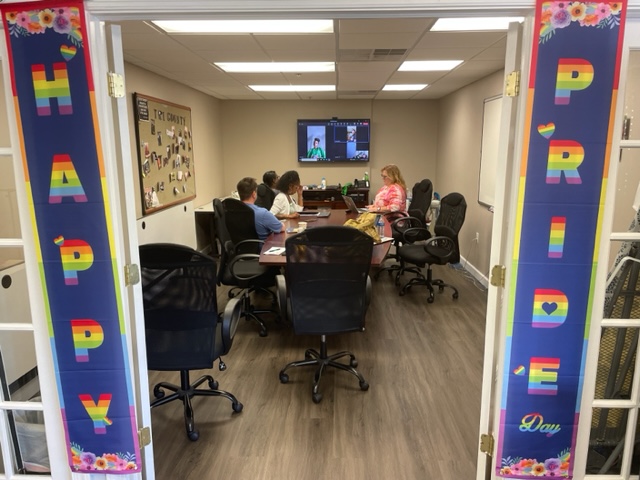The Power of Dialectical Behavior Therapy

August 3, 2023
In the journey to conquer emotional turmoil and empower personal transformation, a pioneering psychotherapy called Dialectical Behavior Therapy (DBT) has emerged as a beacon of hope. Initially developed by psychologist Marsha M. Linehan in the 1980s to aid individuals grappling with borderline personality disorder, DBT has since evolved into a versatile method for navigating a wide spectrum of emotional and behavioral challenges.
At RHD, we recognized the immense potential of DBT and have taken innovative strides to integrate it effectively into our programs. Beginning in 2013, Amanda Janulis and Susan Hunt, both corporate clinical directors at RHD, served on a team along with DBT experts to tailor this therapy to the unique needs of our staff and participants. Amanda shares, “One of the challenges with DBT is that it can be academic. We worked with one of originators of DBT on an adaptation that RHD’s direct service professionals (DSPs) could use.” This adaptation incorporates a comprehensive implantation process, including a 12-day training program. Before the end of 2013, several RHD programs had implemented the therapy – including Wister Street, Kailo, Womanspace Philadelphia and Ardmore, and SALT. RHD received plaudits from Philadelphia’s Community Behavioral Health division of the Department of Behavioral Health & Intellectual disability Services for these endeavors.
DBT encompasses a rich fusion of cognitive-behavioral principles, mindfulness, and acceptance, striking an intricate balance between embracing one’s true self and embarking on a path of personal growth. Its comprehensive framework includes individual therapy, group skills training, phone coaching, and therapist consultation teams. Through this holistic approach, it equips individuals with the necessary tools to regulate their emotions, develop effective coping skills, and cultivate stronger interpersonal relationships.
RHD Tri-County Supportive Housing/MESH in New Jersey successfully implemented DBT in December 2022. Kristen Tahaney, Assistant Program Director, and Andrew Gardner, Clinician, have already witnessed its transformative power firsthand. With a fully trained staff, they have the tools to provide effective support to participants. Kristen recounts how she helped a participant in a mental crisis over the phone by guiding her through deep-breathing exercises. Andrew was thrilled to see another participant internalizing and practicing grounding skills to manage stress effectively. Learning this technique can help individuals stay present in overwhelming moments.
The benefits of DBT extend beyond the participants; they also have a profound impact on RHD staff. Kristen says that therapist consulting teams serve “essentially as therapy for the therapist. We gather weekly to discuss what stresses us out and what concerns us. This has been incredibly helpful for the staff.” Equipped with mindfulness practices and a deeper understanding of the therapeutic process, the staff is better prepared to support the participants effectively.
Amanda emphasizes the crucial role of DBT at RHD, highlighting one of its core tenets: the coexistence of two seemingly opposing truths that are both valid. “The assumption is that people are doing the best they can at any given time, considering their experiences, biology, and neurobiology,” she shares. “However, they can and need to do better. This concept is something RHD staff and participants can immensely benefit from. There’s truly no downside to it.”
By integrating DBT into our practices at RHD, we can do more to transform the lives of both staff and participants and cultivate an environment of compassion, growth, and resilience. To help support this initiative, visit www.rhd.org/make-a-difference.















